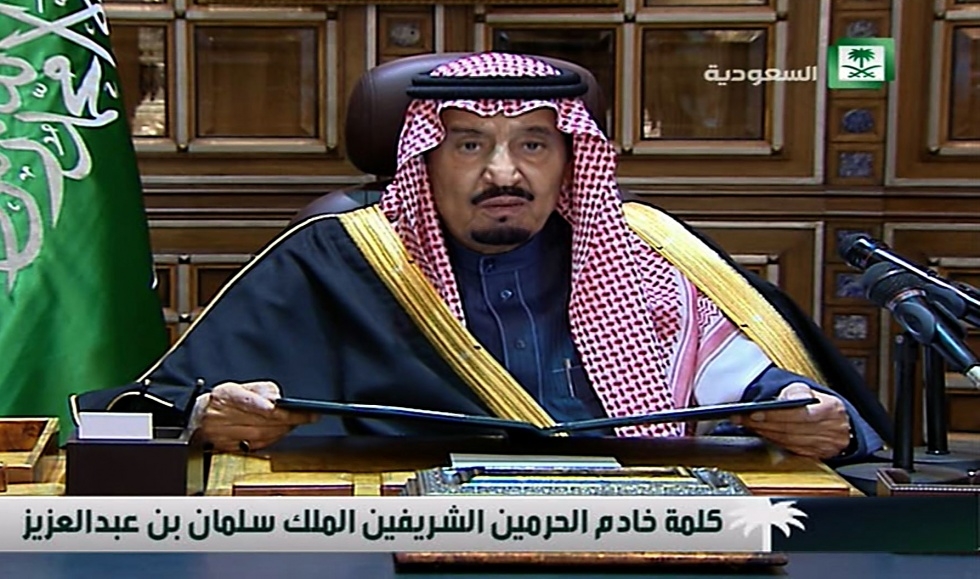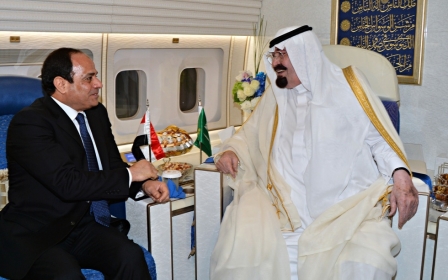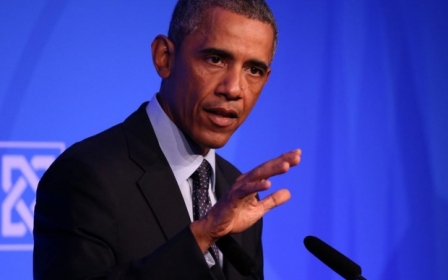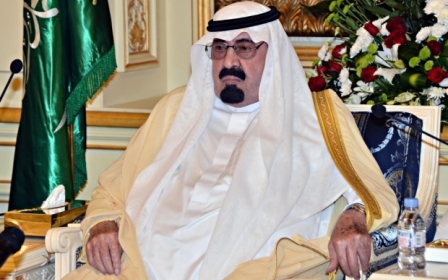King Salman reasserts Sudairi Seven, key Abdullah advisor removed

The new ruler of Saudi Arabia moved quickly on Friday to announce the appointment of sons and allies to key positions within the conservative kingdom and appeared to remove an influential advisor of the late King Abdullah.
King Salman bin Abdulaziz al-Saud's swift changes appear to herald a shift in power within the famously secretive House of Saud, although he was keen to stress continuity in his maiden speech as king.
"We will remain with God's strength attached to the straight path that this state has walked since its establishment," Salman said in televised remarks.
He called for "unity and solidarity" among Muslims and asked for God to support him in his "great responsibility".
In his first hours at Saudi's helm, King Salman promoted 69-year-old Muqrin bin Abdulaziz al-Saud to crown prince from deputy and named Interior Minister Mohammed bin Nayef bin Abdulaziz al-Saud, 55, as the new deputy crown prince.
Muqrin is now first in line to the throne and Mohammed bin Nayef second, appearing to answer the question – in theory – of generational change in Saudi Arabia’s monarchy. Mohammed bin Nayef, if he were to become king, would be the first grandson of King Abdelaziz al-Saud – the founder of modern Saudi Arabia – to rule.
Salman is one of the “Sudairi Seven” – a powerful alliance of seven sons of King Abdelaziz named after their mother Hassa bint Ahmad al-Sudairi. Abdullah was not from the Sudairi seven and Salman’s immediate appointments appear to reassert the alliance’s power over the throne.
Mohammed bin Nayef is the son of a Sudairi, Prince Nayef bin Abdulaziz al-Saud, who died in 2012 and served as the country’s interior minister and crown prince.
Salman’s son – 34-year-old Mohammad bin Salman al-Saud – has been appointed defence minister and head of the royal court, according to the SPA official news agency. His appointment means Khalid al-Tuwaijri – a close advisor of the late King Abdullah and until Thursday officially head of the royal court – has been removed from his position.
Abdullah’s death was announced early on Friday morning, however, the cause of his death was not disclosed by SPA.
While US Secretary of State John Kerry praised Abdullah as a man of “wisdom and vision”, and UK Prime Minister David Cameron commended his “commitment to peace”, the late king has been recently condemned for a raft of human rights abuses including a spike in state implemented beheadings.
At least 15 people have been executed in the kingdom in 2015 – including a woman publicly beheaded in Mecca who was convicted of murder. The recent flogging of jailed liberal blogger Raif Badawi has caused international uproar and Saudi Arabia remains the only country where women are barred from driving.
Abdullah has been praised as a reformer and constructive partner in global politics by world leaders, who view Saudi Arabia as a lucrative trading outlet and key ally in the fight against the Islamic State (IS) group. However, despite Riyadh playing a prominent role in the US-led anti-IS coalition, recent documents have revealed the militant group implement a raft of punishments also prescribed in the conservative Gulf state.
Abdullah responded to the convulsions of the Arab Spring uprisings by heading off dissent at home, with spending increased to keep his population quiet and arrests of human rights activists and critics of the monarchy ramped up. He has donated billions of dollars in aid to former army chief turned Egyptian president Abdel-Fattah al-Sisi, who ousted democratically elected Mohammed Morsi in a popularly backed military coup during 2013.
Abdullah's age and commitment to consensus allowed entrenched conservatives to resist his tentative reforms, amid a lack of clarity about the future path of the monarchy. His nation also unflinchingly led Gulf countries in ignoring calls by other producers to cut oil output to curb the sliding price of crude.
Bid to smooth succession
Since the death in 1953 of King Abdul Aziz bin Saud, the founder of Saudi Arabia, the throne has systematically passed from one of his sons to another - brothers and half-brothers.
King Salman, Abdullah's half-brother, is in his late 70s and in poor health.
Abdullah established the Board of Succession in 2006 to institutionalise the process of transition, which would normally exercise its prerogatives after his death.
He was the 13th son of King Abdul Aziz, but the only son of Abdul Aziz by his mother, a member of the Shammar Bedouin tribe.
That left Abdullah with a relatively weak faction among the many princes of his generation.
In the 1960s he was entrusted with the command of the national guard, the country's second army. He held that job until turning it over to one of his own sons in 2009.
The job allowed him to build close relations with the kingdom's myriad tribes who filled the guard's ranks, one of the main pillars of his authority.
Abdullah became crown prince when his half-brother Fahd ascended the throne in 1982.
Yet his path was still not clear when Fahd suffered a debilitating stroke in 1995, and he faced rivalry from within Fahd's Sudairi clan.
‘Hostile forces’
Abdullah has been credited with some reforms during his time on the throne, including the development of the consultative Shura council, to which he introduced women for the first time in 2013.
He took Saudi Arabia into the G20 group of leading economies and the World Trade Organisation.
In 2002 he parented the pathbreaking Arab Peace Initiative, which offered Israel blanket recognition from 22 Arab states in return for an independent state for the Palestinians.
In public he has been a committed supporter of diplomacy to solve conflicts, calling for a peaceful solution to Iran's nuclear threat.
But US State Department documents disclosed by WikiLeaks quoted him as privately calling for a US military attack on Iran's nuclear facilities to "cut off the head of the snake".
His kingdom is still strongly criticised for a dismal human rights record, including the imprisonment of dissidents, estimated by activists to be in the tens of thousands.
And with the rise of IS, a group described as sharing Saudi Arabia’s ultra-conservative Wahhabi Islamic doctrine, there has come a new set of pressures on the country.
“The Saudi regime is beginning to feel that it has lost the support of the Sunnis, especially after they joined the coalition against IS,” said Madawi al-Rasheed, visiting professor at the London School of Economics Middle East Centre and author of a recent article entitled The Shared History of Saudi Arabia and IS.
“Saudi Arabia feels surrounded by hostile forces.”
New MEE newsletter: Jerusalem Dispatch
Sign up to get the latest insights and analysis on Israel-Palestine, alongside Turkey Unpacked and other MEE newsletters
Middle East Eye delivers independent and unrivalled coverage and analysis of the Middle East, North Africa and beyond. To learn more about republishing this content and the associated fees, please fill out this form. More about MEE can be found here.




